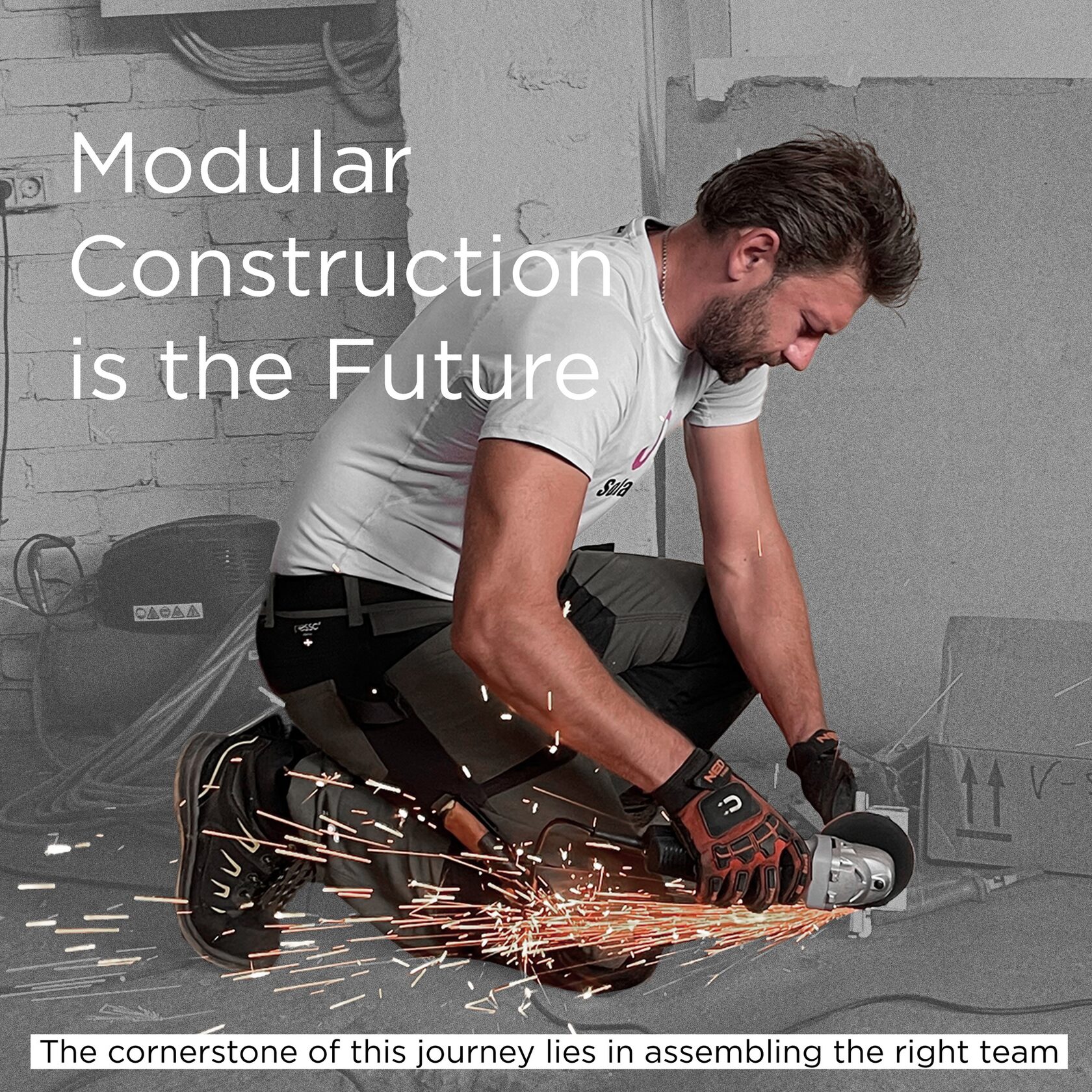Currently, modular construction occupies a relatively modest niche within the expansive real estate domain. However, the surging attention towards this sector is undeniable and promises significant growth.
In regions grappling with labor shortages and housing deficits, modular construction stands as a strategic imperative, promising inclusive housing options catering to a diverse income spectrum.
Transitioning into a modular mindset presents a formidable challenge for many professionals entrenched in conventional development approaches, which have seen minimal evolution over the past century. This challenge is exacerbated by noteworthy missteps by emerging manufacturers, illustrating the misconceptions hindering the broader adoption of modular construction.
Nevertheless, disputing the prospective significance of modular housing in the evolving landscape of multi-unit housing and broader real estate development proves to be a challenge.
For developers and investors to effectively navigate this domain, a comprehensive understanding of creating modular structures is imperative. This necessitates a shift from a "project-based" mindset to a "production" approach, enabling the harnessing of modular construction's potential to meet the escalating housing demands.
The cornerstone of this journey lies in assembling the right team.
An adept and experienced team serves as the linchpin, possessing a nuanced understanding of the risks and advantages at each phase and adeptly steering the project.
Contrary to traditional methodologies like "design-proposal-construction" or "design-construction," modular construction operates on a distinct timeline.
While the benefits, notably a 50% reduction in project timelines, are readily apparent, the requisite adjustments for the triumph of a modular concept are sometimes overlooked.
Crucially, design discipline assumes pivotal importance, ensuring an early commencement of the production process to craft efficacious modular components.
A proficient professional possesses the ability to streamline module types, optimizing designs for seamless integration within expansive projects without stifling overall innovation.
In comparison to conventional constructions, modular construction necessitates substantial initial investments and cash flows, offset by scalability economies and accelerated market penetration.
Even in cases where immediate cost savings are not evident, the expeditious entry into the market often outweighs other potential drawbacks for developers.
A prevalent oversight lies in the understanding that the future of the modular industry hinges not only on technology but significantly on the human element. Undoubtedly, the assimilation of modern technologies into existing production processes holds immense value, translating into time and cost efficiencies, enhanced safety, and heightened construction resilience. However, this aspect forms a distinct facet of the puzzle that demands comprehensive attention and adept management from your team.
In regions grappling with labor shortages and housing deficits, modular construction stands as a strategic imperative, promising inclusive housing options catering to a diverse income spectrum.
Transitioning into a modular mindset presents a formidable challenge for many professionals entrenched in conventional development approaches, which have seen minimal evolution over the past century. This challenge is exacerbated by noteworthy missteps by emerging manufacturers, illustrating the misconceptions hindering the broader adoption of modular construction.
Nevertheless, disputing the prospective significance of modular housing in the evolving landscape of multi-unit housing and broader real estate development proves to be a challenge.
For developers and investors to effectively navigate this domain, a comprehensive understanding of creating modular structures is imperative. This necessitates a shift from a "project-based" mindset to a "production" approach, enabling the harnessing of modular construction's potential to meet the escalating housing demands.
The cornerstone of this journey lies in assembling the right team.
An adept and experienced team serves as the linchpin, possessing a nuanced understanding of the risks and advantages at each phase and adeptly steering the project.
Contrary to traditional methodologies like "design-proposal-construction" or "design-construction," modular construction operates on a distinct timeline.
While the benefits, notably a 50% reduction in project timelines, are readily apparent, the requisite adjustments for the triumph of a modular concept are sometimes overlooked.
Crucially, design discipline assumes pivotal importance, ensuring an early commencement of the production process to craft efficacious modular components.
A proficient professional possesses the ability to streamline module types, optimizing designs for seamless integration within expansive projects without stifling overall innovation.
In comparison to conventional constructions, modular construction necessitates substantial initial investments and cash flows, offset by scalability economies and accelerated market penetration.
Even in cases where immediate cost savings are not evident, the expeditious entry into the market often outweighs other potential drawbacks for developers.
A prevalent oversight lies in the understanding that the future of the modular industry hinges not only on technology but significantly on the human element. Undoubtedly, the assimilation of modern technologies into existing production processes holds immense value, translating into time and cost efficiencies, enhanced safety, and heightened construction resilience. However, this aspect forms a distinct facet of the puzzle that demands comprehensive attention and adept management from your team.
